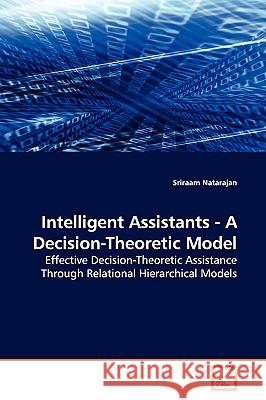Intelligent Assistants - A Decision-Theoretic Model » książka
Intelligent Assistants - A Decision-Theoretic Model
ISBN-13: 9783639145809 / Angielski / Miękka / 2009 / 176 str.
Building intelligent computer assistants has been a long-cherished goal ofAI. Many intelligent assistant systems were built and fine-tuned to specificapplication domains. In this work,we develop a general model of assistance that combinesthree powerful ideas: decision theory, hierarchical task models andprobabilistic relational languages. We use the principles of decision theoryto model the general problem of intelligent assistance. We use acombination of hierarchical task models and probabilistic relationallanguages to specify prior knowledge of the computer assistant. Theassistant exploits its prior knowledge to infer the usersgoals and takes actions to assist the user. We evaluate the decisiontheoretic assistance model in three different domains including a real-world domainto demonstrate its generality. We show through experiments that both thehierarchical structure of the goals and the parameter sharing facilitated byrelational models significantly improve the learning speed of the agent.Finally, we presentthe results of deploying our relational hierarchical model in a real-worldactivity recognition task.











